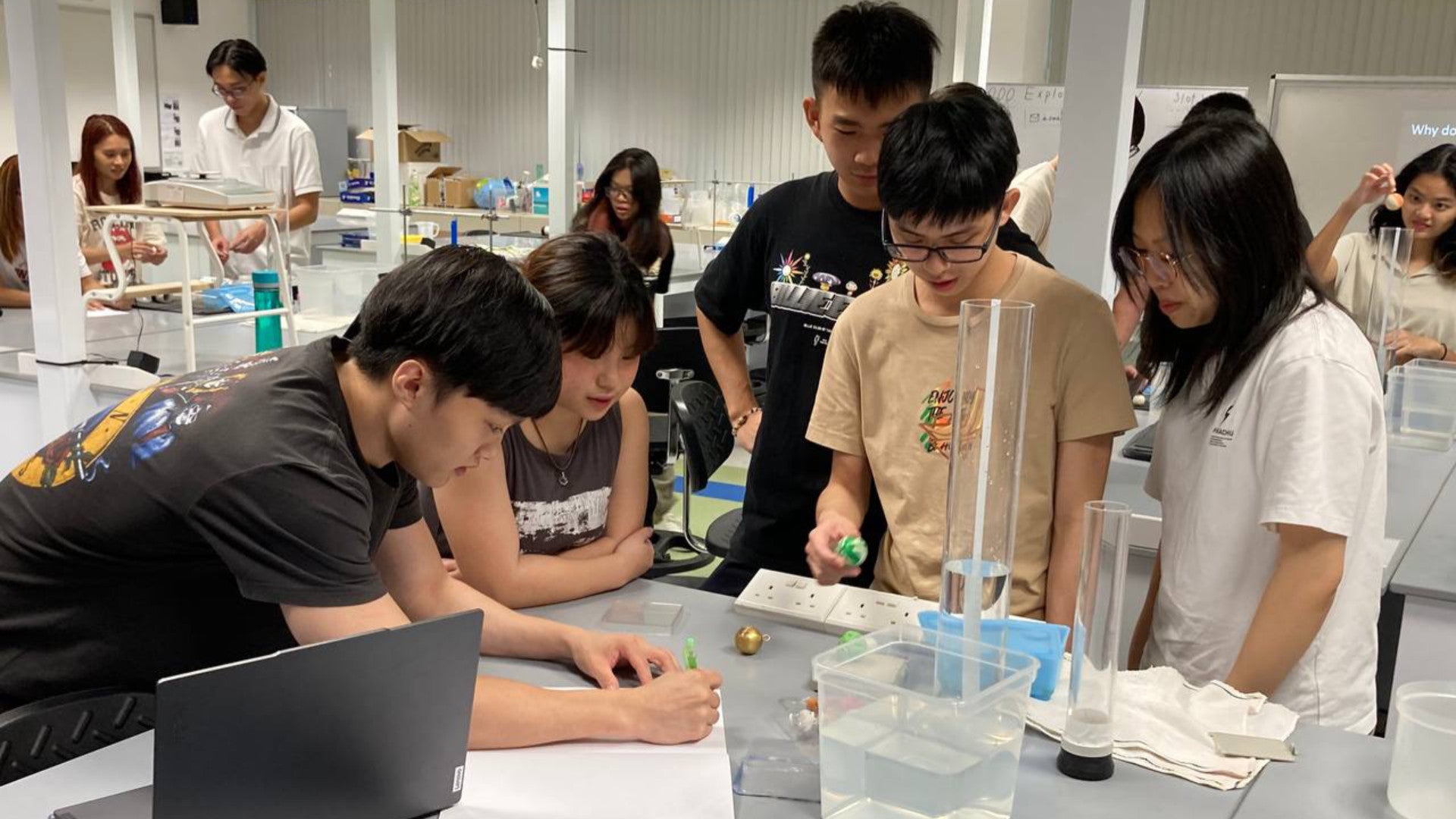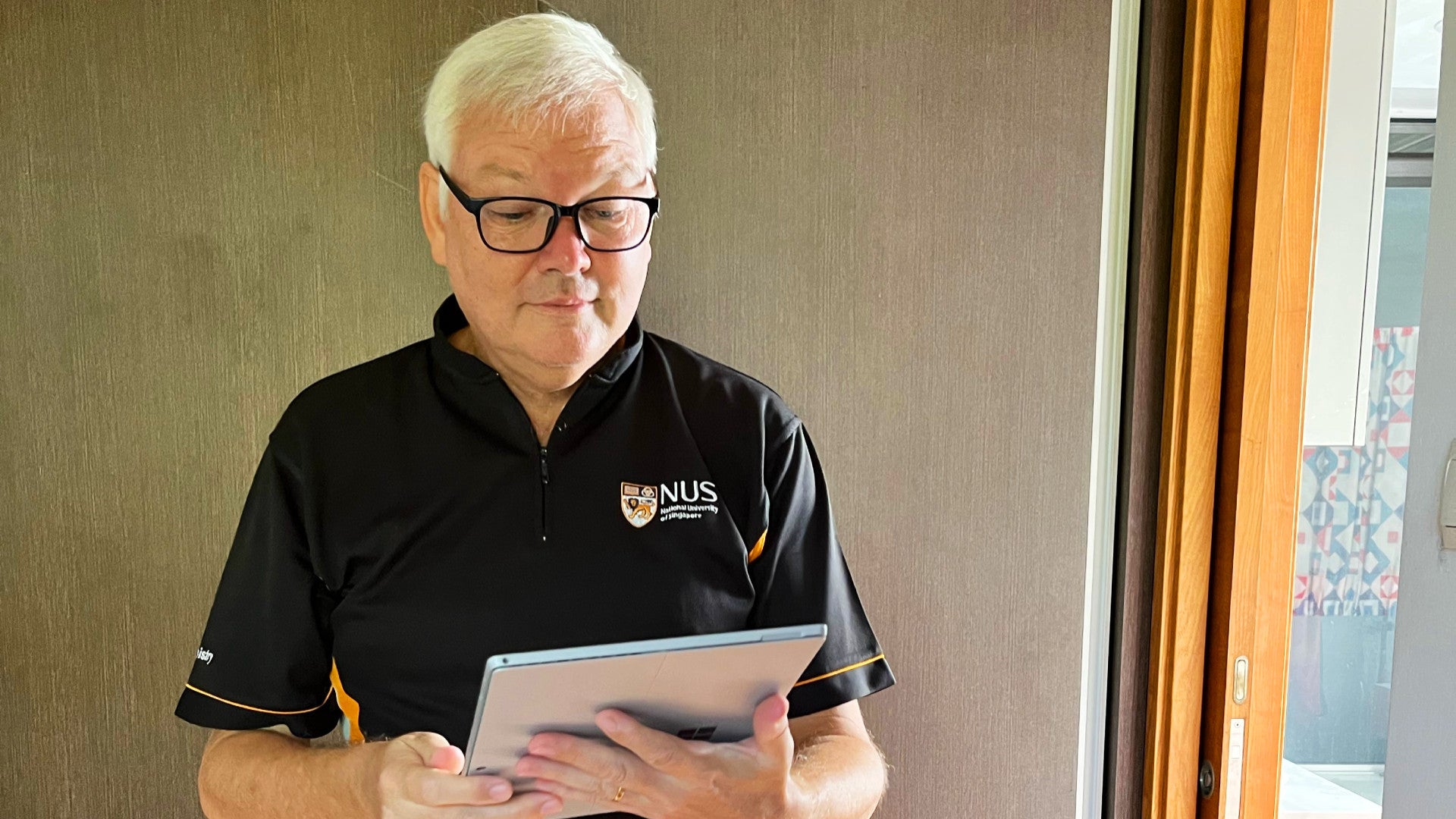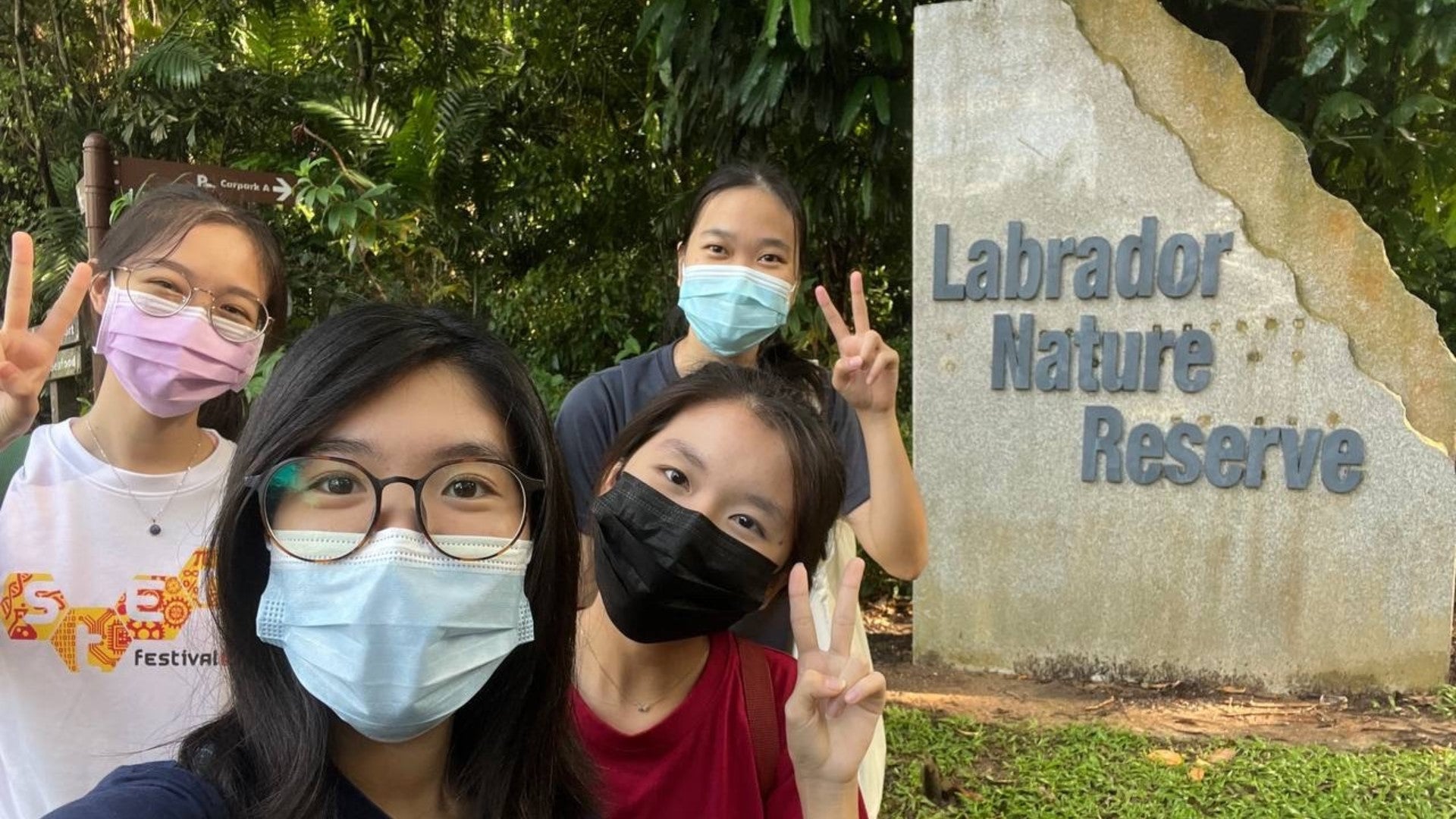Stay curious, question everything: ‘Citizen scientists’ explore how and why science works
April 1, 2024

Furiously scribbling down notes and equations from the blackboard in near silence – that is how Associate Professor Ryan Bettens remembers many of the chemistry lectures from his undergraduate days in 1980s Australia. “And if you talked, the professor would turn around and throw the chalk at you!” he recounted with a wry laugh.
Interactions between teacher and student were just as limited during tutorials, where students were handed problem sheets to solve independently. But this was a method that Assoc Prof Bettens, who joined the NUS Faculty of Science in 2000, realised was not helpful to students’ learning, prompting him to adopt a new teaching philosophy.
Today, he takes extra care to prioritise an interactive learning experience. “It’s what the students do that makes them learn,” he explained.
No better course showcases this mindset than HSI1000 How Science Works, Why Science Works, which is coordinated by Assoc Prof Bettens and run by a team of lecturers and teaching assistants. The interdisciplinary course is offered to College of Humanities and Sciences students and teaches them about scientific inquiry – the process of observing, asking questions, and seeking answers via tests and experiments – through hands-on lab sessions known as “exploratoriums”, as well as interactive discussions during workshops.
These sessions are complemented by field trips to Singapore’s nature reserves and parks, where students take on the role of citizen scientists, collecting data to answer a scientific question posed in class.
One such question was whether nature reserves have better quality forests than nature parks. Students then carried out simple surveys of the forests, measuring the tree heights and densities, as well as characterising their plant diversity. These data were later collated and discussed in class. "We also discussed the pros and cons of this scientific method, and when would be the best time to use it," added Dr Angeline Shu, one of the course’s teaching assistants.
The course was introduced to reinforce the fundamental principles of the scientific method among students. “Science is about discovery and problem-solving, why things happen as they do in the natural world,” said Assoc Prof Bettens, emphasising that this concept has become increasingly important to underscore in a post-truth era marked by misinformation and disinformation.

Learning to ask ‘why’
Assoc Prof Bettens, who is from the Department of Chemistry, added that students are so used to being told how to get the right answers that they no longer appreciate how we come to know what we know.
“They are taught the output of science. It’s like, Newton said, ‘Force equals mass times acceleration’, and then the teacher says, ‘Now you must apply this equation in this way to solve problems, please practise’. This is absolutely not science; it’s the opposite of science.”
To remedy this, students are asked to focus on the process of finding an answer by testing out various possibilities during the lab sessions. In one experiment, students were tasked to investigate the concept of buoyancy using a beaker, water, and various objects. They had to come up with a hypothesis as to why certain objects float while others sink.
As Dr Shu elaborated: “The better science students will say, ‘Oh, it’s density’, and I will ask them questions like, “Why is it density?” or “Why is the formula for density: mass over volume?” It’s to help them realise that they are not practising science but relying on scientific content.”
Workshops are just as engaging. During one of these sessions, students discuss how scientific inquiry is applied to a less established and more contested field, like climate change. They wrap up the workshop with a role-playing game to propose and negotiate multiple climate action strategies and evaluate their impact via a scientific model known as EN-Roads.
Elyse Tan Yuexuan, a first year Sociology student from the Faculty of Arts and Social Science, greatly enjoyed the classes. “HSI1000 is an innovative, beginner-friendly foray into the expansive world of science. Assoc Prof Bettens made an impression on me with his home experiments and comedic presence, as he tried to make abstract concepts easier to comprehend for those without prior scientific background," she shared.

Applying the scientific method to everyday life
By the end of the module, students learn the steps needed to establish whether a claim is true or not – a skill that is especially useful in a world where people are inundated with information every day.
“When you see a fantastic ad with a crazy claim, like a hand cream that will turn back time and give you youthful-looking hands, you will ask, ‘Really? where’s the evidence?’,” said Assoc Prof Bettens.
Dr Shu hopes the course will spark scientific curiosity in students. “I sincerely think kids have it, but it gets stamped out of them as they get older due to information overload. It becomes ‘just remember and regurgitate’,” she said.
How Science Works, Why Science Works recently completed its third run. Some aspects of the course are unrecognisable from the first iteration as the teaching team continues to improve the material. “To me, this is the essence of good teaching – having the passion to make it better, or finding things that are wrong and trying to fix it,” said Assoc Prof Bettens.
Source: NUS News

